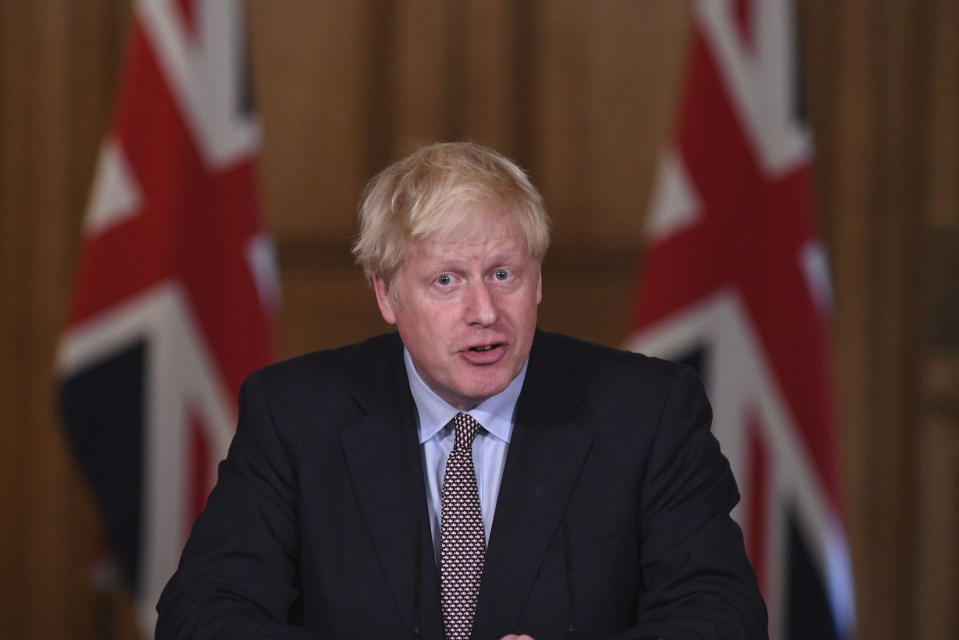Pound's Brexit sell-off pauses ahead of Internal Market Bill vote

The pound rose slightly in early trade on Monday, finding a floor after steep falls against the dollar and euro last week.
Sterling was up 0.3% against the euro to €1.0838 (GBPEUR=X) by late morning in London. It remained near six-month lows against the single currency despite the small rise.

The pound trading up 0.5% against the dollar at the same time, reaching $1.2863.
The small rally came as Goldman Sachs told clients sterling looked attractive after its recent sell-off.
“For investors willing to look through some near-term volatility, current levels for Sterling longs now look attractive, in our view,” analysts wrote in a note.
The pound slumped last week as Brexit trade negotiations soured and the EU and UK clashed over Britain’s controversial Internal Market Bill.
READ MORE: Pound dives as EU threatens to end Brexit trade talks over Internal Market Bill
“Sterling found itself the centre of attention from a currency market perspective last week,” said John Fahey, a senior economist with AIB.
“It suffered amid increasing concerns over the risk that the UK and EU will not be able to agree a trade deal before the end of the this year when the transition period ends.
“Such a scenario would mean a move to WTO rules, resulting in another severe blow to the UK economy. This would come on the back of an expected 10% fall in GDP this year.”
Trade talks stalled last week after the UK published details of its Internal Market Bill, which would renege on key parts of the Withdrawal Agreement signed with the EU last year. The bill will override the Northern Ireland protocol, which requires the island of Ireland to follow EU standards in a no deal Brexit scenario.
The government argues the Internal Market Bill will prevent a border between parts of the UK, an outcome it said would threaten the Good Friday Agreement peace process. Ministers also argue food supply to Northern Ireland could be threatened under the Withdrawal Agreement protocol.
Critics say the Internal Market Bill itself threatens the Good Friday Agreement and will seriously damage Britain’s standing on the world stage, as the bill’s passing would mean Britain was breaking international law.
READ MORE: Pound under pressure with Brexit talks on a knife edge
Five former prime ministers have spoken out against the deal. John Major and Tony Blair made a rare joint intervention over the weekend, writing an opinion piece in the Sunday Times urging MPs to reject the bill.
On Monday, David Cameron said he had “misgivings” about the bill. Former prime ministers Gordon Brown and Theresa May have also spoken out against it.
Former Conservative attorney general Geoffrey Cox has urged MPs to reject the bill. Writing in the Times on Sunday evening, Cox said Boris Johnson was doing "unconscionable" damage to Britain's reputation with the bill. Cox, who served in Johnson’s government until February this year, said he will vote against it in parliament.
MPs are due to debate and vote on the Internal Market Bill later on Monday.
Michael Hewson, chief market analyst at CMC Markets, said it was “likely to be a stormy UK parliamentary session.”
Shadow chancellor of the Duchy of Lancaster Rachel Reeves told the BBC’s Andrew Marr on Sunday: “Tomorrow, the bill as it stands, the Labour party, and it looks like a large number of Conservative MPs, will not be able to support it.”
Reeves said it was “the wrong thing to do for our moral standing in the world.”

 Yahoo Finance
Yahoo Finance 